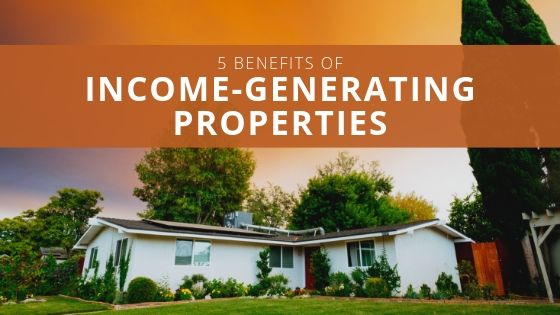Income-generating properties have become a lucrative investment option in the real estate industry. Single family, small multi-family or vacation rental properties can be a great way to get started in real estate and supplement your income. Well-managed income-generating properties can even become a full-time job, especially if done on a large scale. Investing in such properties is highly beneficial in various ways, particularly if you’re looking to get seriously involved in real estate.
Self-employment
Managing income-generating properties is a desirable investment opportunity where you can become your own boss. Overseeing such properties is not such a demanding undertaking that requires technical knowledge. You only need to establish good contact with related professionals, including plumbers, contractors, and home repair experts to maintain the properties.
Monthly Free Cash Flow
If budgeted appropriately, you can find properties that will not only cover your mortgage and expenses, but also leave you with residual monthly free cash flow. Given todays cap rates, you are not likely going to become rich from the cash flow on a single residential rental property if fully leveraged, but done on a larger scale this can start to produce a nice supplemental income.
Mortgage amortization
Investing in income-generating properties is a great opportunity to borrow money with a defined path to building equity over the long term. Aside from your monthly FCF, each month you make your mortgage payment a portion of it will go toward building principle in your property. Over time, this principle repayment will become a larger percentage of your monthly payments, until the loan is paid in full.
Benefit from tax write-offs
As a property owner, managing income-generating properties gives you additional benefits of tax deductions. Depreciation is typically the largest non-cash deductible benefit from owning rental property. This can create a nice tax shield during your holding period. Although you have to make a “catch up” payment when your property is ultimately sold (assuming its depreciated value exceeds the sales price), if you have owned the property for more then a year this reverts to the long term capital gains rates which are typically far less then for ordinary income. If you become a full time real estate person, you can also deduct depreciation from other sources of ordinary income.
Appreciating in value
Residential properties will participate 1:1 in an appreciating real estate market because whatever CAP rates are, you can always get rid of the tenant and sell them in the “owner occupied” market. While this appreciation (or depreciation) in value goes both ways, if you do your homework the majority of markets with healthy underlying demographics will appreciate in value significantly more than they will decline. Over a long term holding period, this can even outpace your other sources of gains.

